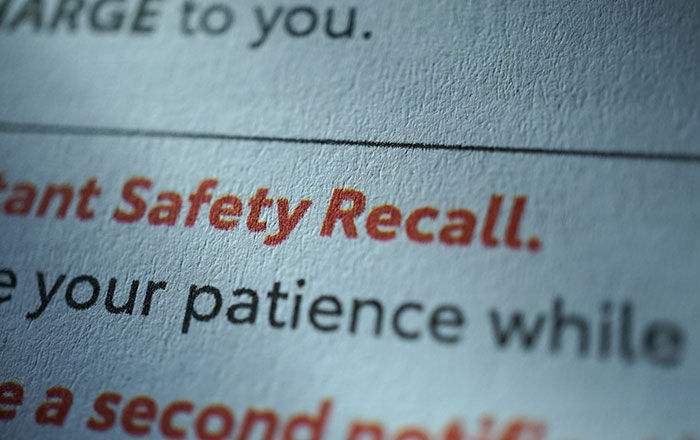
When we hear the term “personal injury,” physical harm immediately comes to mind — broken bones, bruises, and the like. However, the scope of personal injury extends beyond the physical realm, encompassing emotional and mental aspects as well. In recent times, the understanding of personal injury has evolved, recognizing the profound impact it can have on mental well-being. This article delves into the intricate relationship between physical and mental personal injuries, shedding light on the question: Can personal injury be mental?
The Holistic Nature of Personal Injury
Traditionally, personal injury has been primarily associated with physical harm resulting from accidents, negligence, or intentional acts. However, the experience of an injury extends beyond the bodily wounds. The trauma of an incident can reverberate deeply within an individual’s psyche, causing emotional distress, anxiety, and even post-traumatic stress disorder (PTSD). This emotional aftermath can be just as debilitating as physical injuries, affecting one’s overall quality of life and daily functioning.
The Mind-Body Connection
The mind and body are inextricably linked, with each influencing the other in profound ways. This interconnectedness is particularly evident in the aftermath of a personal injury. Research has shown that the physical trauma suffered during an accident can have a significant impact on an individual’s mental well-being. Pain and discomfort, limitations in mobility, and changes in appearance resulting from the injury can lead to feelings of frustration, helplessness, and even depression.
Moreover, the mental state of an individual can also influence the recovery process of physical injuries. Stress and anxiety, common emotional responses to traumatic incidents, can impede the body’s natural healing mechanisms. Chronic stress can weaken the immune system, slow down wound healing, and increase the perception of pain, further highlighting the intricate connection between the mind and body.
Emotional Trauma and Personal Injury
Emotional trauma resulting from personal injury is a subject that has gained increasing attention in recent years. Survivors of accidents, assault, medical malpractice, and other incidents may develop severe psychological symptoms that linger long after their physical wounds have healed. These psychological wounds are often invisible but can be just as debilitating as physical injuries.
One of the most well-known psychological responses to personal injury is PTSD. Individuals who have experienced or witnessed a traumatic event may develop this disorder, characterized by symptoms such as flashbacks, nightmares, hypervigilance, and emotional numbness. For instance, a car accident survivor might find themselves unable to drive again due to intense fear and anxiety triggered by memories of the crash. This showcases the profound impact that emotional trauma can have on an individual’s daily life and functionality.
In addition to PTSD, other mental and/or emotional responses to personal injury may include:
- Anxiety Disorders: Generalized Anxiety Disorder (GAD), Panic Disorder, and Social Anxiety Disorder are examples of conditions that involve excessive and persistent worry, fear, or apprehension, which can significantly impact a person’s daily life.
- Depression: Major Depressive Disorder is characterized by persistent feelings of sadness, hopelessness, and a lack of interest or pleasure in activities. It can lead to changes in sleep, appetite, and energy levels.
- Adjustment Disorders: These occur when an individual has difficulty coping with a significant life change or stressor. Symptoms can include emotional distress, anxiety, and impaired functioning.
- Acute Stress Reaction: Similar to PTSD, this condition arises in response to a traumatic event and involves symptoms like anxiety, dissociation, and intrusive thoughts. However, it’s usually shorter-lived than PTSD.
- Phobias: Specific phobias involve an irrational fear of a particular object or situation, such as heights, animals, or confined spaces. Phobias can cause severe anxiety and panic attacks.
- Emotional Distress: Emotional distress claims can encompass a range of emotional reactions caused by negligence, intentional harm, or other factors. This can include feelings of fear, humiliation, embarrassment, or anguish.
- Sleep Disorders: Traumatic events and ongoing stress can lead to disruptions in sleep patterns, such as insomnia or nightmares, which can have cascading effects on mental and emotional well-being.
Legal Recognition and Mental Personal Injury
In the realm of law, personal injury claims have predominantly focused on physical harm and associated financial losses. However, legal systems are gradually acknowledging the legitimacy of mental personal injuries. Emotional distress, pain and suffering, and loss of enjoyment of life are some of the emotional damages that are being recognized as valid grounds for compensation in personal injury lawsuits.
For instance, a victim of medical malpractice might not only be entitled to compensation for physical damages resulting from the negligence but also for the emotional distress caused by the breach of trust and the subsequent impact on their mental well-being. This recognition in the legal arena signifies a crucial shift towards acknowledging the profound ways in which mental and emotional injuries can impact a person’s life.
The Road to Recovery
Recovery from a personal injury, whether physical or mental, is a multidimensional process that requires a comprehensive approach. Integrating mental health support into the rehabilitation process is essential to ensure holistic healing. Professionals such as psychologists, counselors, and psychiatrists play a pivotal role in helping individuals cope with the emotional aftermath of personal injuries.
Cognitive-behavioral therapy (CBT), exposure therapy, and other evidence-based psychological interventions have proven effective in treating trauma-related disorders. These therapies empower individuals to confront and process their traumatic experiences, gradually reducing the associated distress and helping them regain control over their lives.
Mental Health Matters
Personal injury attorneys understand that not all injuries are obvious injuries. Accidents often come with mental and emotional struggles that cannot be fixed with a bandage, and aren’t visible to other people.
That’s why many South Carolina accident victims choose to hire a qualified accident lawyer who can advocate for them to receive the care they are rightfully owed, including for injuries that other people can’t see. The attorneys at McWhirter, Bellinger & Associates are highly experienced in personal injury law and understand that accidents often have long-lasting mental consequences that require professional care in the form of therapy, medication, or both.
Dealing with Insurance Companies
Insurance company practices can vary, but it’s not uncommon for insurance companies to approach claims involving emotional trauma with a degree of skepticism. This is because emotional trauma can be difficult to objectively quantify and assess compared to physical injuries or damages.
In some cases, insurance companies might request additional documentation, medical records, or expert opinions to establish the link between the traumatic event and the emotional distress claimed. This doesn’t necessarily mean they are trying to dismiss the trauma as being “in your head,” but rather they are seeking evidence to support the claim and ensure that the claim is valid.
However, some individuals may feel that insurance companies are not taking their emotional trauma seriously enough and may interpret certain actions as downplaying the significance of their experiences. It’s important to remember that insurance companies operate based on legal and contractual standards, and their primary goal is to fairly assess claims in line with their policies.
If you believe that your emotional trauma is being unfairly dismissed by an insurance company, it’s a good idea to consult with legal professionals who are experienced in insurance claims. They can provide you with guidance on how to navigate the situation and advocate for your rights.
Conclusion
In the modern understanding of personal injury, it is evident that it extends beyond the confines of the physical body. The mind-body connection highlights the intricate interplay between physical injuries and emotional well-being. Emotional trauma resulting from personal injuries can be just as debilitating as physical wounds, impacting an individual’s mental health and overall quality of life. Legal recognition of mental personal injuries is expanding, emphasizing the importance of addressing emotional damages in the pursuit of justice.
Contact The Personal Injury Attorneys at McWhirter, Bellinger & Associates
If you’ve been injured in an accident that has impacted your emotional and/or mental well-being, you may be entitled to compensation. The South Carolina personal injury lawyers at McWhirter, Bellinger & Associates would be happy to speak with you about your case.
Our law firm has seven offices across the Midlands of South Carolina, and we offer free case evaluations. Give McWhirter, Bellinger & Associates a call today at 803-702-8615. It won’t cost you anything to see if we can help.®















